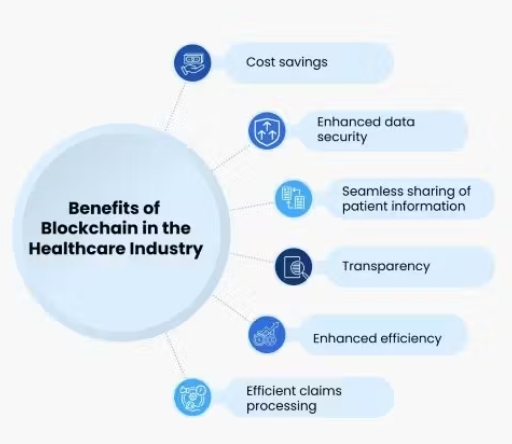Healthcare is an industry that is constantly evolving and looking for new ways to improve patient care and streamline processes. One of the latest technologies making waves in the healthcare industry is blockchain technology.
What is Blockchain Technology?
Blockchain technology is a decentralized, digital ledger that records transactions across a network of computers. It is most commonly known for its use in cryptocurrencies like Bitcoin, but its applications extend far beyond just financial transactions.
How Can Blockchain Revolutionize Healthcare?
1. Enhanced Security: One of the biggest benefits of blockchain technology in healthcare is the enhanced security it provides. Because the data stored on a blockchain is encrypted and distributed across multiple computers, it is much less vulnerable to cyber attacks and breaches.
2. Improved Data Integrity: Blockchain technology ensures that data is accurate and tamper-proof. This can help prevent errors in medical records and ensure that patients receive the correct treatment based on accurate information.
3. Streamlined Processes: Blockchain technology can streamline and automate processes in healthcare, such as managing electronic health records, tracking medications, and processing insurance claims. This can ultimately lead to faster and more efficient care for patients.
4. Improved Interoperability: One of the biggest challenges in healthcare is the lack of interoperability between different healthcare systems and providers. Blockchain technology has the potential to break down these barriers by providing a secure and transparent way to share and access patient data across different platforms.
5. Increased Transparency: Blockchain technology provides a transparent and immutable record of transactions, making it easier for patients to track their healthcare data and providers to ensure compliance with regulations.
Challenges and Considerations
While blockchain technology has the potential to revolutionize healthcare, there are still challenges that need to be addressed. These include regulatory issues, scalability concerns, and the need for standardized protocols. Additionally, there may be resistance from healthcare providers and organizations who are hesitant to adopt new technologies.
Despite these challenges, the potential benefits of blockchain technology in healthcare are too great to ignore. By leveraging the power of blockchain, healthcare providers have the opportunity to enhance security, improve data integrity, streamline processes, and increase transparency in the healthcare industry. As technology continues to advance, blockchain is poised to play an even greater role in shaping the future of healthcare.

